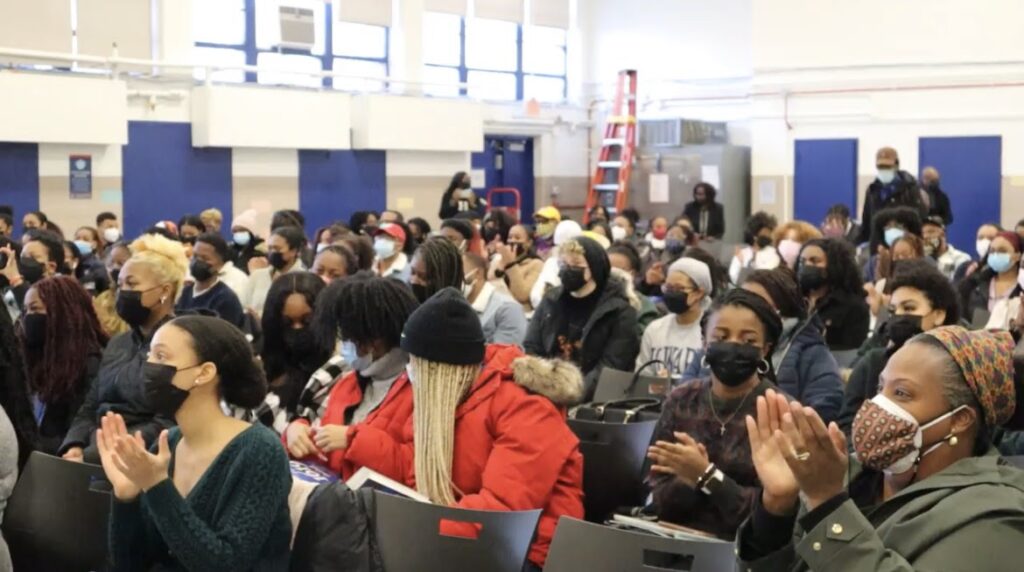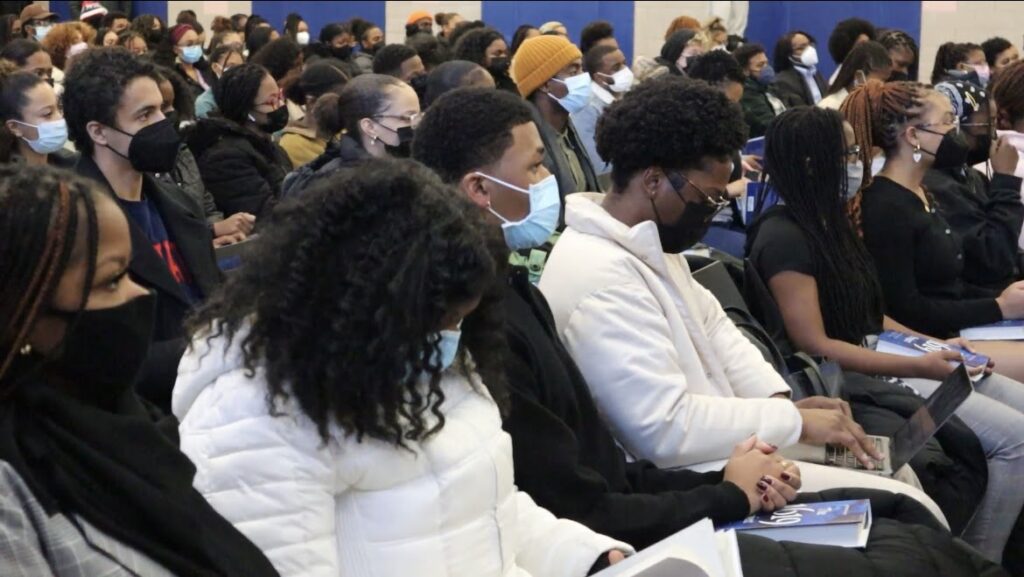
Students started off the week on a high note after joining Pulitzer prize-winning journalist and Howard professor, Nikole Hannah-Jones for a discussion on her book “The 1619 Project”. Upon arrival at the Washington Metropolitan High School, also known as the MET building, attendees were greeted with free copies of the book, made possible through a donation from the John Legend Foundation and Penguin Books.
The conversation, led by graduating senior DeAnte “Micah” Washington, unveiled more about Hannah-Jones’ perspective when developing the story and content of the project.
“I never cried so much making anything, as I did making ‘The 1619 Project’,” Hannah-Jones said. “It’s painful, there’s no distance.”
In laying the groundwork for the project, Hannah-Jones revealed that learning and writing about Black people came as a challenge at times. The book is centered around history rooted in centuries of discrmination and violence, and how primary institutions in the U.S. often came up short when educating students on these brutal moments of American history. When conducting research for the project, she realized how grave circumstances were for her ancestors.
“The 1619 Project” offers a connection between past and post-Jim Crow America that isn’t welcomed by critics, but Hannah-Jones stressed that her findings weren’t new.
“You know what’s in the project isn’t revolutionary,” Hannah-Jones said.
Created in light of the 400-year anniversary of the arrival of the first slave ship to the United States, “The 1619 Project” challenges the current and persistent idea of American Exceptionalism. Though her work is recognized globally for its novel take on the effects of slavery on our modern and contemporary world, Hannah-Jones emphasized that it was quite the opposite. The book contains a compilation of essays and poems written by famed Black authors, journalists, and historians who already published similar work. For example, the story ended with Sonia “Mama” Sanchez, an African American poet and activist. Hannah-Jones explained that it was important for Sanchez to be the last voice because she is one of the last of her contemporaries, along with James Baldwin and Toni Morrison.

“It’s not my project. We collectively own this. Black people created this,” Hannah-Jones said.
She continuously expressed the terms “we”, “us” and “ours” throughout the book reception when referring to the voice of the project. She spoke in phrases of action, eliciting applause and snapping from the audience with nearly every experience she shared. Those were elements exclusive to a space like Howard University, and other HBCUs, in which information regarding one’s heritage is shared openly. In contrast, many public institutions limit the extent to which that information is shared with students of all backgrounds due to state mandates.
Content from “The 1619 Project” is banned from public school curriculum in southern states, including Texas and Florida, as a result of the passing of ant-critical race theory legislation last year. In addition to “The 1619 Project”, there are limitations placed on content from other staples in Black literature in those very public schools with a large attendance by Black students.
As of 2021, Hannah-Jones joined Howard University as a professor and began teaching an inaugural course dedicated to The 1619 Project and other related content this semester. Although the consequences of the anti-critical race theory legislation have no impact on her teaching the project to her students, it is reflective of how taboo race relations have become in the United States. However, endless access to the understanding and content of Black history is the purpose of an HBCU.

Towards the end of the reception, Washington posed an important question: “What do you need from us?” Hannah-Jones shared that she needs everything she is getting from the students at Howard and the surrounding environment.
“Everytime I’m here, I just feel like I get life,” Hannah-Jones said.
The book reception concluded with questions from attendees. Students lined up to talk with Professor Hannah-Jones and reflected on all that she shared. Hannah-Jones opens her doors to all students and continues to further develop the Center for Journalism and Democracy, which she founded on this very campus, to support journalism students.
Copy edited by Lauryn Wilson

